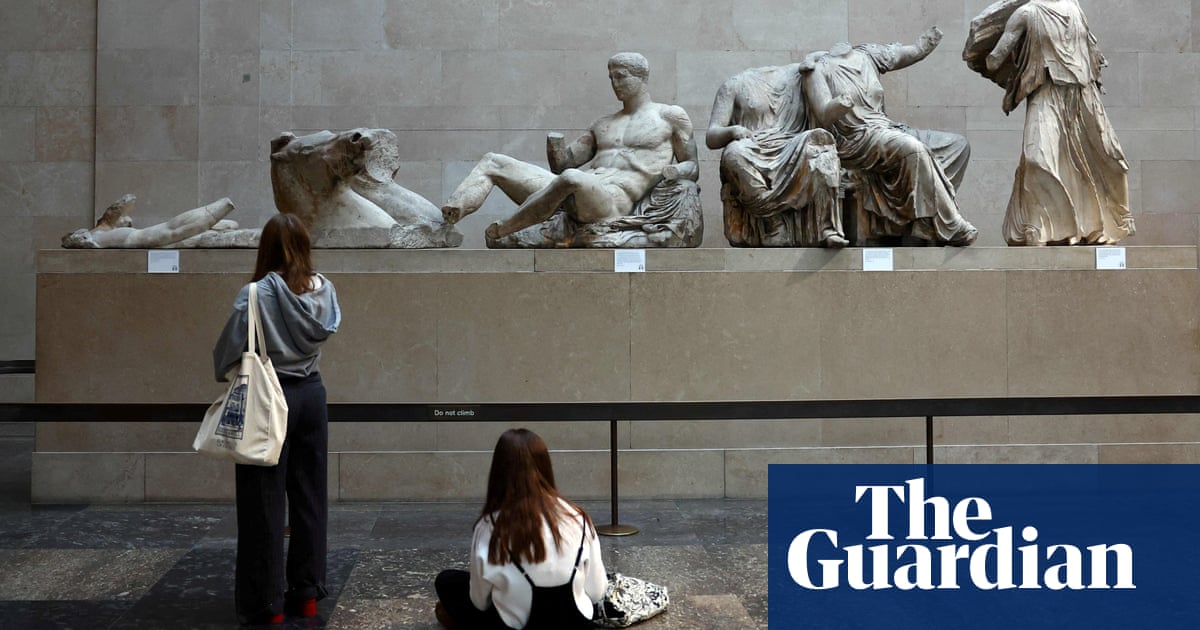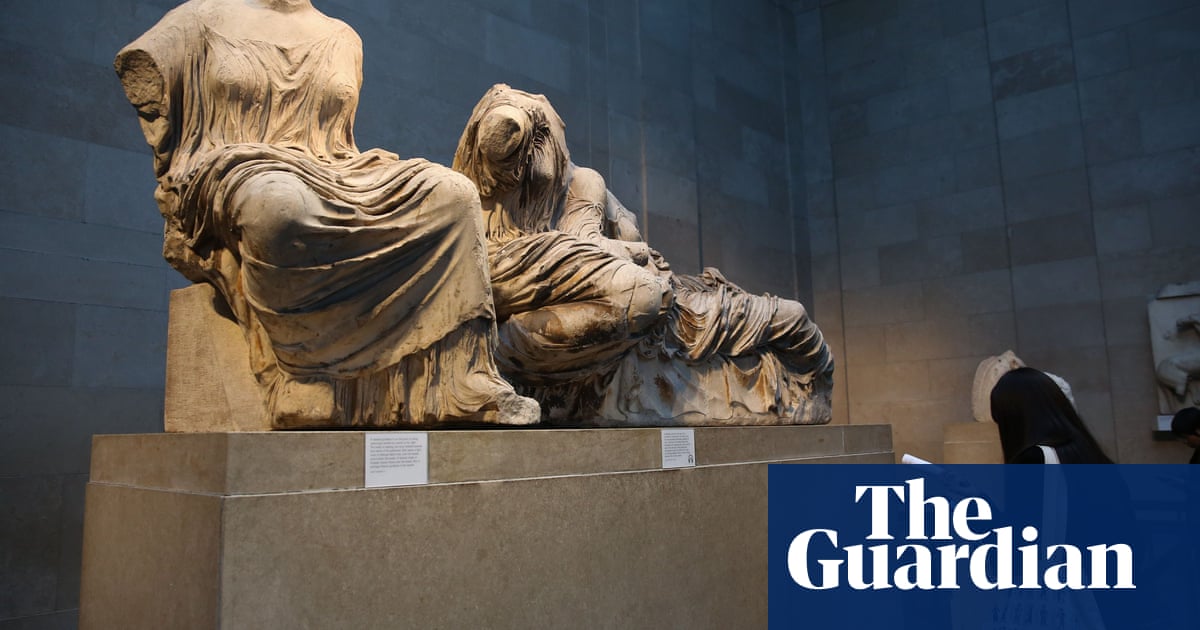
Britain should be part of a pan-European effort to bring the Parthenon marbles back to Greece, according to an architect of Brexit, who said the UK should make a grand gesture to create closer diplomatic and cultural relations between the two countries.
David Frost, a chief Brexit negotiator, called for a deal between Britain and Greece that would put the long-running dispute to bed, with the sculptures returned to Greece for the first time since the early 1800s when they were taken by Lord Elgin. At present they are in the British Museum’s collection.
Lord Frost said a deal should include a collaborative campaign to encourage other countries, such as Denmark, Germany, Austria and France, which also have parts of the marbles, to return the items to Greece.
He said there should also be an exchange programme between the two countries, with items from Greek museums going to Britain, as well as closer cultural ties including language exchanges.
“My personal view on this is that it is time for a grand gesture and only the government can make it. It is to offer to return the marbles as a one-off gift to Greece from this country, but as part of, and on condition of, a new wider Anglo-Greek cultural partnership,” he said during a debate in the Lords.
The dispute over the artefacts, which are also known as the Elgin marbles, blew up into a diplomatic row last month when the British prime minister, Rishi Sunak, cancelled a meeting with his Greek counterpart, Kyriakos Mitsotakis, after he called for the sculptures to be returned ahead of their planned talks.
Successive Greek leaders have called for the marbles to be returned and placed alongside the remaining original pieces at the Acropolis museum in Athens.
Frost, a former government minister, said he believed the marbles should return to Athens, although he was clear the deal would be a “one off” and would not open the door to other longstanding claims on British Museums items, such as the Benin bronzes from Nigeria that were taken by British forces in 1897 and are at the centre of a repatriation campaign.
“Such a partnership would have to definitively set aside for good the rights and wrongs of the individual acquisition,” said Frost. “It would also have to be clear it was not a precedent for restitution demands for any other museum exhibit.”












